1. Definition of “consumer fireworks”
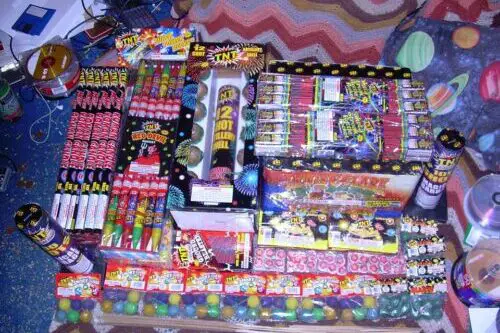
Consumer fireworks must meet CPSC standards: firecrackers capped at 50 mg powder, aerials under 130 mg, size limits on shells. Essentially, there’s a maximum wattage badge you must wear. If a device exceeds those limits, it’s considered display fireworks and instantly triggers federal licensing. So if you think your “homemade mega‑bottle rocket” is legal—think again.
It matters because those who sell or import fireworks must verify compliance or be charged. The line between a legal firework and regulated explosive is thinner than a fuse. You might think you’re doing something simple, but crossing the line hands you a whole different set of laws. It ensures kids can’t buy high‑power fireworks at corner stands.
2. Federal ban on M‑80s and cherry bombs
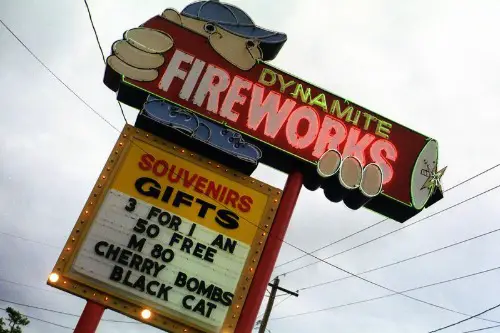
Under federal law, powerful fireworks like M‑80s, cherry bombs, and firecrackers over 50 mg of flash powder are strictly banned from consumer sale. It’s like the secret‑agent rulebook: you’re only allowed the tamer tools. Breaking this ban isn’t just rude—it’s a federal crime, the kind that gets ATF investigators interested. So your neighborhood backyard may feel more like a restricted zone than a free‑for‑all.
This matters because people used to cross state lines to buy those banned fireworks, believing they were just toys. Now if you show up with a cherry bomb, you risk felony charges and confiscation. It’s enforced by both the CPSC and ATF working together. All that to say: your sparkler is allowed, but the big boomers are off the table.
3. Display fireworks require ATF license
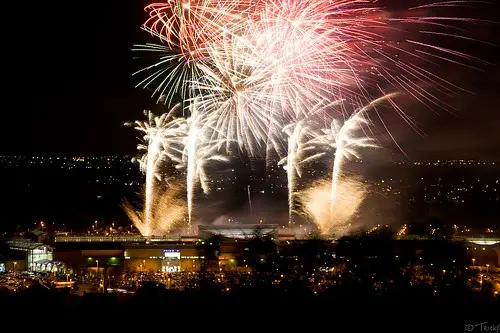
Once fireworks exceed consumer thresholds, they become display-grade and require ATF licensing to store, transport, or use. That’s the difference between lighting a sparkler and orchestrating a mini‑spectacle. Without that license, using display fireworks is illegal—even for backyard shows. The rules extend to storage limits and fire‑safe facilities.
It matters for anyone dreaming of a flashy backyard finale: if you’re working with shells over regulated limits, you’re essentially stepping into professional territory. ATF keeps strict tabs on licenses and storage. Trying to operate without one could lead to fines or federal raid. July 4 isn’t fireworks anymore—it’s a fully authorized mission.
4. Massachusetts total private‑use ban
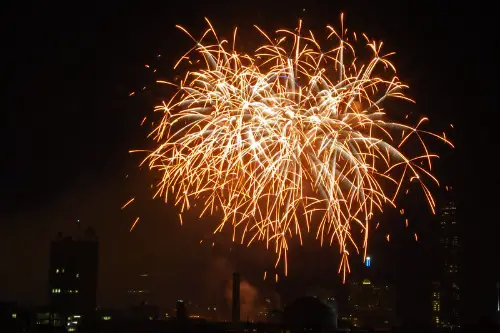
Massachusetts is the only state where all private fireworks—yes, even sparklers—are completely banned. No buying, no using, no salvaging. Public displays are allowed under permits, but individual citizens must sit it out. It’s the hardest lockdown in the country.
It matters because even sparkler-waving patriots must defer to pros. People from neighboring states often tried to bring in fireworks and got cited. This ban has been in place since the 1940s and remains firm. July 4 in MA feels more like attending a public event than hosting your own show.
5. Non‑aerial and novelty‑only states
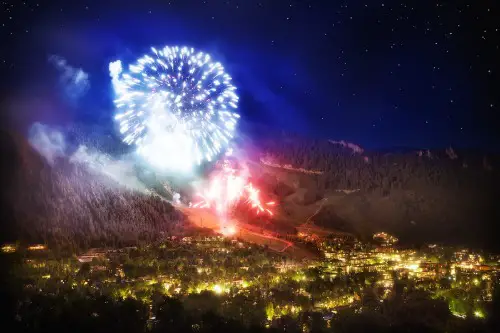
Several states—like Arizona, California, Colorado, Connecticut, Delaware, Idaho, Maryland, Minnesota, New Jersey, New York, North Carolina, Oregon, Rhode Island, Virginia, Wisconsin—only allow non‑aerial and non‑explosive fireworks (like sparklers or ground fountains). So aerial shells or bottle rockets are a no‑go. You can still wave glow sticks and light fountains—but launch anything skyward, and you’re breaking the law. Local law enforcement may even confiscate your illegal stash.
That matters because many consumers think “if fireworks are allowed, anything goes.” But these states force you to stick to low‑flying, low‑bang items. Violating those rules can result in fines or forced surrender of fireworks. It’s a way to keep big displays contained, even on a national holiday.
6. County‑level regulation in HI, NV, WY
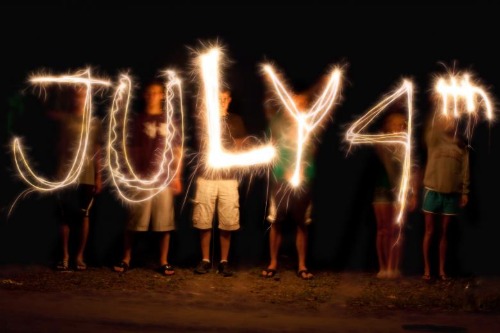
In Hawaii, Nevada, and Wyoming, fireworks laws are set at the county instead of statewide—creating a patchwork of rules. It means what’s legal in Las Vegas might be illegal just across the county line. You have to become your own intelligence analyst. Crossing border into another county may void your fireworks license instantly.
That matters because locals and tourists alike risk fines by assuming consistency. Each county draws its own line: some allow aerials, some only sparklers, some none at all. For July 4 it becomes a game of local espionage—check the county rule before lighting up. Maybe carry your own dossier—or better yet, leave fireworks behind.
7. Use curfews and municipal time limits
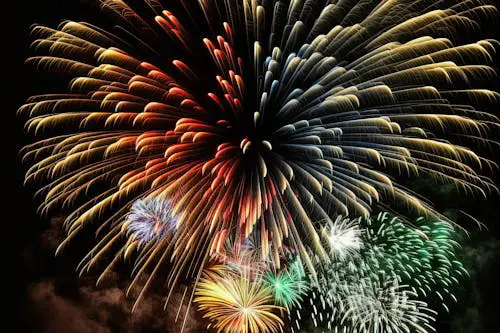
Many states let municipalities restrict fireworks to narrow time slots—commonly between 10 p.m. and 10 a.m., with extensions only on July 2–3–4 and Dec 31 until 1 a.m. Pennsylvania is a clear example—cities restrict fireworks nightly except around the holiday. It feels like coordinating spy rendezvous by the clock. Miss your slot, ignite outside approved hours, and you might end the evening with fines or a visit from police.
It matters because timing your launch becomes tactical planning. City limits vary: if you’re in Pittsburgh or Philadelphia, you get an extended window only on Truman‑style national holidays. Some states even extend windows if July 4 falls on a weekday. That’s why you’re surveilling the clock, not just the sky.
8. Distance and targeting restrictions
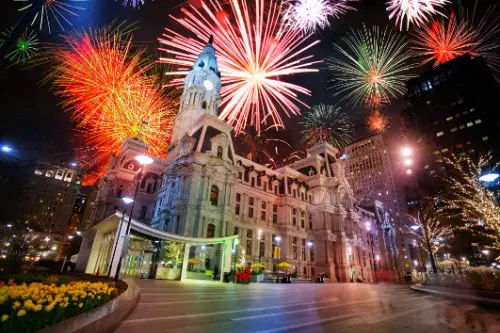
States like Pennsylvania ban discharging fireworks within 150 feet of buildings or vehicles, and prohibit aiming them at others. You can’t launch them off your porch or into your neighbor’s driveway. Even if you own the property—still no targeting vehicles. It reads like strict operations protocol: safe distance mandatory, clear line of sight required.
It matters because it limits where you can launch from—even choosing a launchpad becomes strategic. Violation can result in property damage claims or criminal penalties. April fool shows gone wrong? Better keep to open fields. It’s safety by law, turning your July 4 celebration into a perimeter‑controlled mission.
9. Prohibition of use under influence

Discharging consumer fireworks while intoxicated or under the influence of controlled substances is illegal, in places like Pennsylvania. You’re basically banned from lighting flares while buzzed. The logic: impaired judgment plus fireworks equals disaster. If caught, you could get fines or even more severe charges.
Why include it? Because far too many yard accidents stem from impaired use. This turns every firework lighting into a sobriety checkpoint. It’s part of the law so that your July 4 doesn’t become a cautionary tale—or an ER story. And yes, sparklers count too—no flaming shot glasses nearby.
10. Storage limits for display fireworks

Federal rules cap how much explosive material can be stored in mixing buildings: max 500 lb of pyrotechnic compositions, and only 10 lb of flash powder per process building. That’s industrial‑grade logistics. If a small supplier ignores those caps, inspectors can show up and shut it down—or worse. It’s what separates backyard novelty crackers from professional display setups.
It matters because violations often lead to catastrophic blasts or license revocations. Just ask investigators reviewing recent fireworks warehouse explosions. These storage rules help prevent incidents in dens and garages across the country. So if someone claims they have city‑scale fireworks in their backyard shed—it’s a red flag.
11. Exploding targets classified as explosives
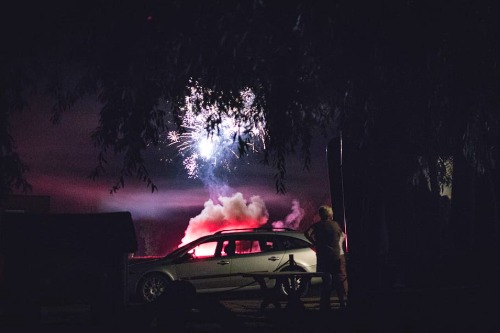
Some states classify exploding targets (e.g., Tannerite) as explosives requiring permits. New York treats binary exploding targets like fireworks—meaning you can’t mix them or use them without licensing. In Ohio, mixing components without a permit is a felony. The law effectively forbids backyard “boom practice” without official paperwork.
That matters when people assume Tannerite is just a harmless pastime. Fire officials treat it like military‑grade ordinance, and some public lands ban it outright. In July 4 context, if you’re setting off exploding targets in lieu of fireworks, you’re on the books. Permit or bust—that’s how serious it gets.
12. Local municipalities can have stricter rules
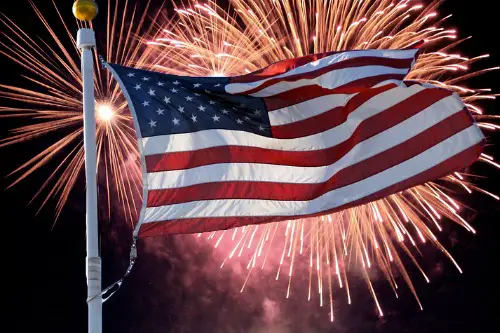
Even in states allowing consumer fireworks, local ordinances can ban or tighten restrictions—cities like Des Moines or Dubuque in Iowa bar private fireworks even on July 4, unless state law overrides it. Recent Iowa legislation attempted to strip cities of that power around national holidays. It’s like local agencies hiding in plain sight. You may think your state is lenient—but your city council might think otherwise.
It matters because state permission may not be enough. You could legally buy fireworks, drive home, and still be cited by local law enforcement. For a legal July 4 mission—you need both state and local clearance. That’s why your checklist must include a stop at city hall.
This post 12 Fireworks Laws That Make July 4 Feel Like a Spy Mission was first published on American Charm.


